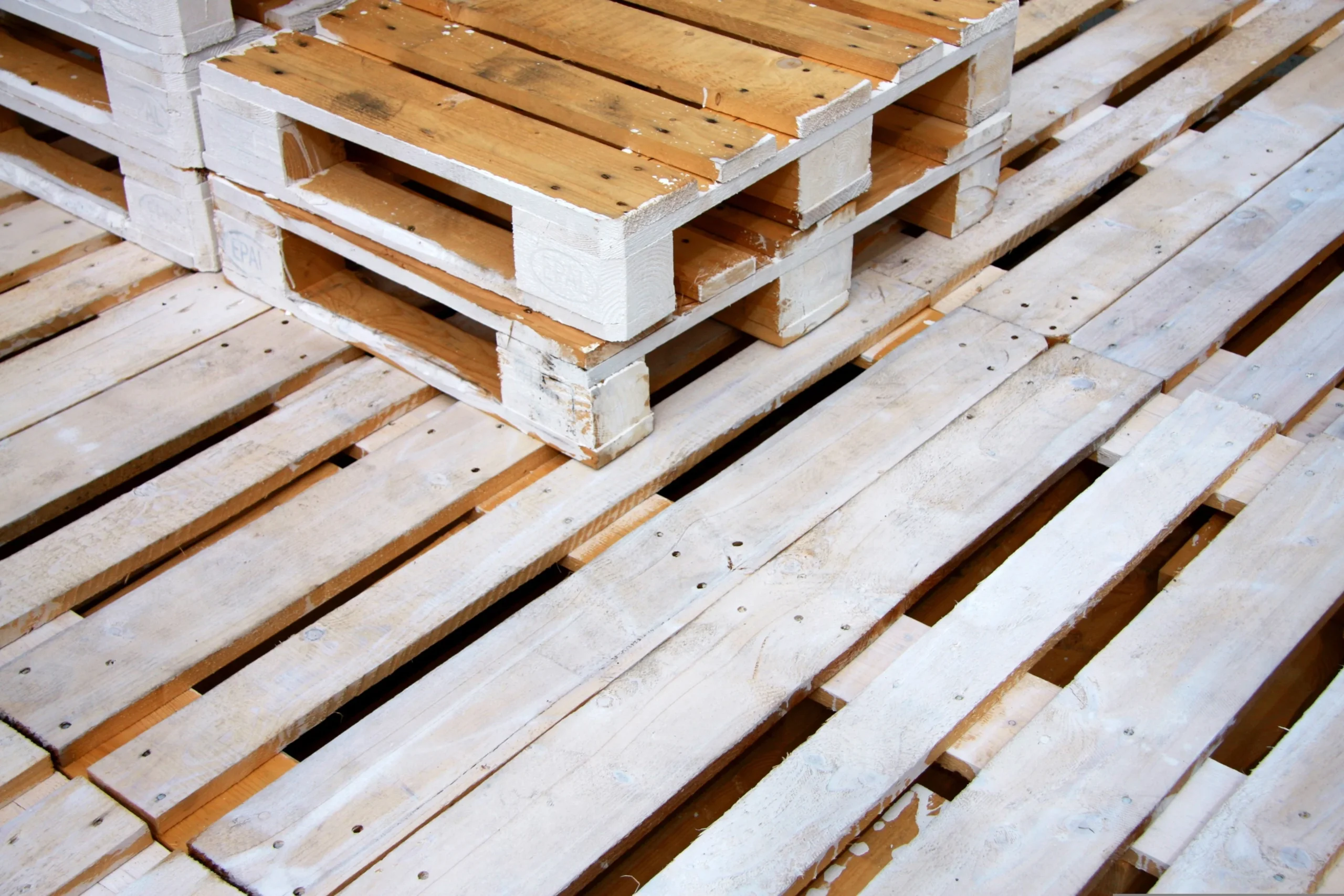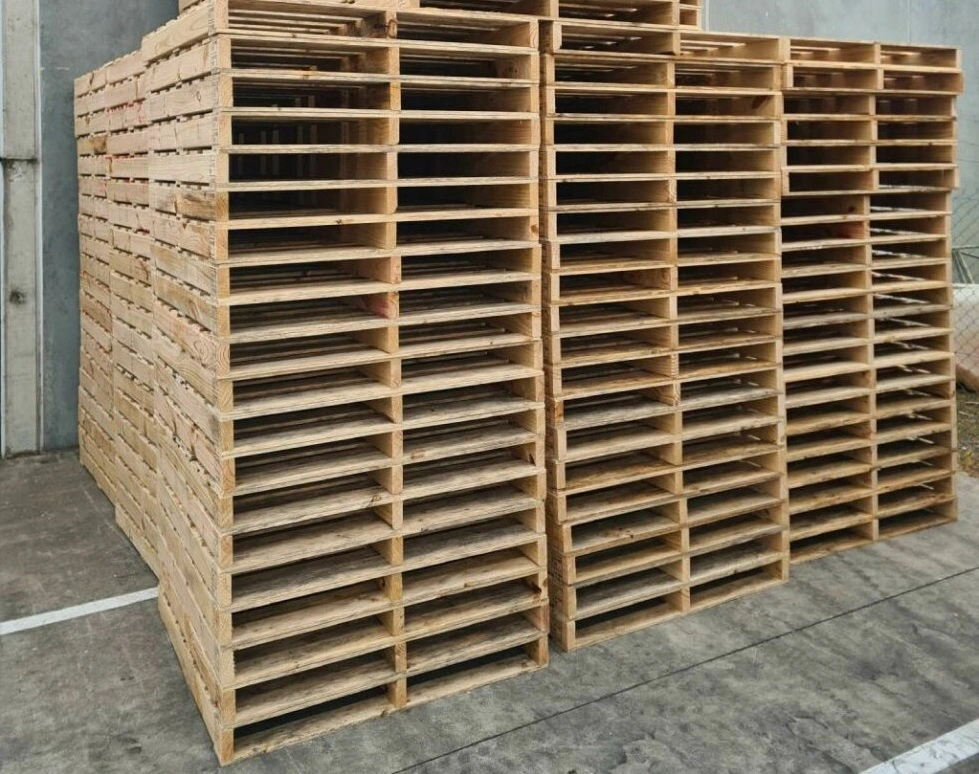At a glance:
- Hidden fees in pallet hire, such as late return charges, cleaning and repair fees, lost pallets, and peak surcharges, can quickly raise overall costs without clear disclosure.
- Industries like logistics, retail, manufacturing, and food and beverage feel these extra costs the most due to their high pallet usage.
- Owning pallets eliminates ongoing rental fees and surprise charges. It also gives you full control over quality, availability, and maintenance.
- Waterstone Pallets offers durable, compliant pallet solutions, including Australian Standard Pallets, ISPM 15 pallets and more.
Pallet hire often seems like the cheaper and easier option for businesses at first. You pay a small fee and receive the pallets you need, without worrying about maintenance or storage. It looks like a straightforward solution, particularly for companies that require flexibility. However, unexpected costs can arise with pallet hiring. What initially seemed like a budget-friendly choice can quickly impact your cash flow and overall profits.
Many businesses in Australia encounter hidden fees they didn’t anticipate while hiring pallets. These include late return penalties, cleaning costs, repairs, and even seasonal charges that are often hidden in the fine print of rental agreements. Due to these unexpected costs, hiring a pallet can become significantly more expensive than purchasing one in the long run.
In this article, we’ll outline the most common hidden fees in pallet hire agreements. We’ll also help you spot them early and discuss why owning pallets can often be a smarter and more cost-effective long-term solution. By the end, you’ll know how to manage your pallet costs and protect your finances.
Why Do Businesses Hire Pallets?
Many businesses choose to hire pallets because it’s simple and flexible. Instead of spending a large amount upfront, companies can rent pallets as needed. This helps them manage cash flow more effectively. It also saves on storage space since pallets can be returned when the job is done.
Industries such as logistics, retail, manufacturing, and food and beverage rely heavily on pallet hire. These sectors move large volumes of goods every day. So, having easy access to pallets helps keep operations running smoothly.
That said, pallet hire isn’t always the most cost-effective option. The costs can quickly add up with hidden fees and ongoing rentals. Alternatively, purchasing pallets outright often proves to be the smarter long-term decision. It gives businesses full control over their assets and reduces surprise pallet hiring charges. This approach builds stability and saves money in the long run.
Common Hidden Fees in Pallet Hire Contracts
When companies sign a pallet rental contract, they focus on the base hire fee, but the other charges that are often buried in the fine print go unnoticed. Here are some hidden costs of pallet hire that you should know:
Late Return Penalties
Late return fees are one of the most frequent and annoying hidden costs in pallet hire agreements. These fees occur when pallets are not returned to the supplier before the rental period has expired. The longer the delay, the more late fees you’ll incur, which can quickly escalate.
For instance, a logistics company in Melbourne might face transport delays due to traffic, weather issues, or staffing shortages. In such a case, it doesn’t take long for late return fines to reach hundreds of dollars, even for a small delay lasting just a few days.
To avoid late return penalties, businesses should schedule returns carefully and allocate extra time for unexpected issues. Having a clear pallet tracking system can also help you monitor return deadlines and prevent hectic rush fees.
Cleaning & Repair Charges
Certain industries are required to adhere to strict cleanliness and safety standards. In the food and beverage, pharmaceutical, and export industries, pallets need to be clean and free from contamination. If a pallet is returned dirty or damaged, the supplier charges additional cleaning and repair fees.
Wooden pallets are particularly susceptible to damage and contamination because they absorb moisture and are more difficult to clean. While ISPM 15 heat treatment pallets help prevent pest issues for export compliance, it does not sterilise the pallet. Plastic pallets or lined wooden pallets may be a better option to lower contamination risks and cleaning costs.
Transport & Delivery Fees
Pallet delivery and collection services may not be included in your base rental cost. Many suppliers charge extra for transportation, and these fees can differ based on distance, location, and timing. If your business needs urgent deliveries or pickups outside normal hours, the costs can rise significantly.
For instance, a retailer in the outer suburbs of Melbourne may encounter higher pallet delivery and collection fees than a business located in the city centre. Likewise, weekend pickups or last-minute schedule changes can lead to even higher rates. That’s why it’s important to compare transportation terms from different suppliers to keep costs under control.
Admin & Management Fees
Some companies charge extra fees for tasks like tracking pallets, managing inventory, or handling paperwork. These pallet management fees might seem small at first, but they can quickly accumulate, especially when billed monthly. The problem is that these fees are often hidden deep in invoices, making them difficult to notice.
Many businesses don’t realise how much they’re spending on services that could be done in-house or negotiated out of the contract. The best way to avoid this cost is to ask for a complete breakdown of charges before signing any agreement.
Lost, Damaged, or Missing Pallet Charges
Another major cost in pallet hire comes from lost or damaged pallets. If a pallet goes missing or is returned in bad condition, suppliers will charge replacement fees. This is especially costly for Australian Standard Pallets, which must meet strict design and durability requirements, making them more expensive to replace than generic pallets.
Pallet loss can happen for various reasons, like poor tracking, miscommunication between locations, or theft. Without a good pallet tracking system in place, it’s hard to determine who is at fault, which forces your business to cover the cost.
Seasonal or Peak Pallet Surcharges
During busy times like holidays, harvest seasons, or major sales events, many pallet rental companies raise their prices. These seasonal pallet hire fees can be added with little warning, catching businesses off guard with unexpected costs. Industries such as retail, fresh produce, and manufacturing are particularly affected by these charges.
When demand increases, shortages occur, and suppliers raise prices to cope with the limited supply. By negotiating long-term contracts with fixed rates, businesses can secure pricing before the busy season starts. This method provides stability and avoids sudden cost increases that can upset budgets.
Why Owning Pallets Is the Smarter Choice Over Hiring
Numerous industries in Australia utilise pallets for the movement and storage of goods. While hiring may look convenient, owning pallets usually offers better long-term value and control. Here are some reasons why purchasing pallets can be a smarter choice:
- Lower Long-Term Costs: Owning pallets removes ongoing rental fees that can add up quickly. It also protects you from additional charges like late return penalties or seasonal surcharges that can strain your budget.
- Full Control Over Assets: When you own your pallets, you control how and when they are used. This gives you immediate access without delays occurring from supplier shortages or delivery schedules.
- No Hidden Fees: Buying pallets outright eliminates recurring costs for cleaning, repairs, or lost pallet charges. A one-time purchase keeps your expenses clear and easier to plan for.
- Customisation for Your Needs: When purchasing, pallets can be made to fit your products perfectly. You can buy custom pallets tailored to your specific needs, incorporating your logo and ensuring compliance with industry standards.
- Better Quality and Reliability: When buying pallets, you can have them made for heavy-duty use and maintain them under your control. This helps prevent damage to goods and improves safety during handling and transport.
- Higher Return on Investment (ROI): Pallet ownership is valuable in the long run. When you no longer need them, you can also resell them. The value is both sustainable and the most economical option when compared to rentals.
Hidden fees in pallet hire can quickly deplete your business budget if you don’t notice them. Costs like late return penalties, cleaning fees, and peak surcharges often add up. This can turn what seemed like an affordable option into an expensive one. Knowing about these extra charges helps you plan better and avoid unnecessary expenses.
Owning pallets instead of renting them gives you full control and leads to long-term savings. Without ongoing rental fees or surprise charges, your business can run more smoothly while keeping costs predictable and manageable.
For high-quality pallets, choose a trusted pallet supplier like Waterstone Pallets to ensure durability and dependable service. Contact us for tailored, compliant pallet solutions built to support your operations.
FAQs
What are the most common hidden fees in pallet hire agreements?
Common hidden fees in pallet hire agreements include charges for late returns, lost or damaged pallets, admin fees, cleaning or repair charges, and seasonal surcharges.
How can I tell if my business is being overcharged for pallet hire?
Review your invoices carefully and compare them to the original contract terms. Look for unexpected charges, such as late fees or transport costs. Compare your rates with those of other pallet suppliers to determine if you are paying more than the industry standard.
Is it more cost-effective to buy pallets instead of hiring them?
Yes, buying pallets is often more cost-effective in the long run because you avoid rental fees and other associated costs. You also gain complete control over your assets.
What are the long-term benefits of owning pallets for my business?
Owning pallets can save money over time by removing ongoing rental and hidden fees. It also gives you better control over quality, availability, and maintenance, which makes operations smoother and more reliable.



